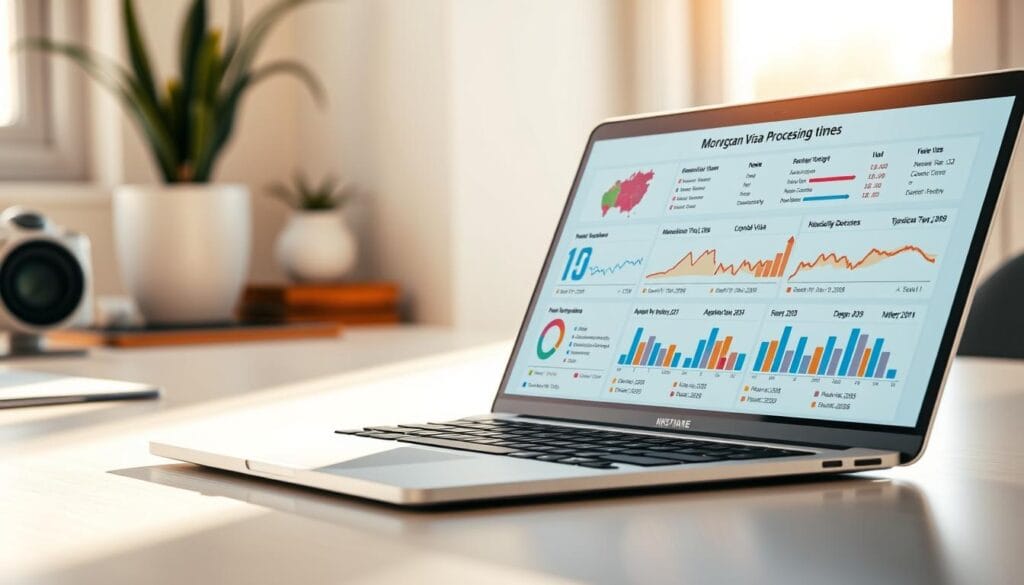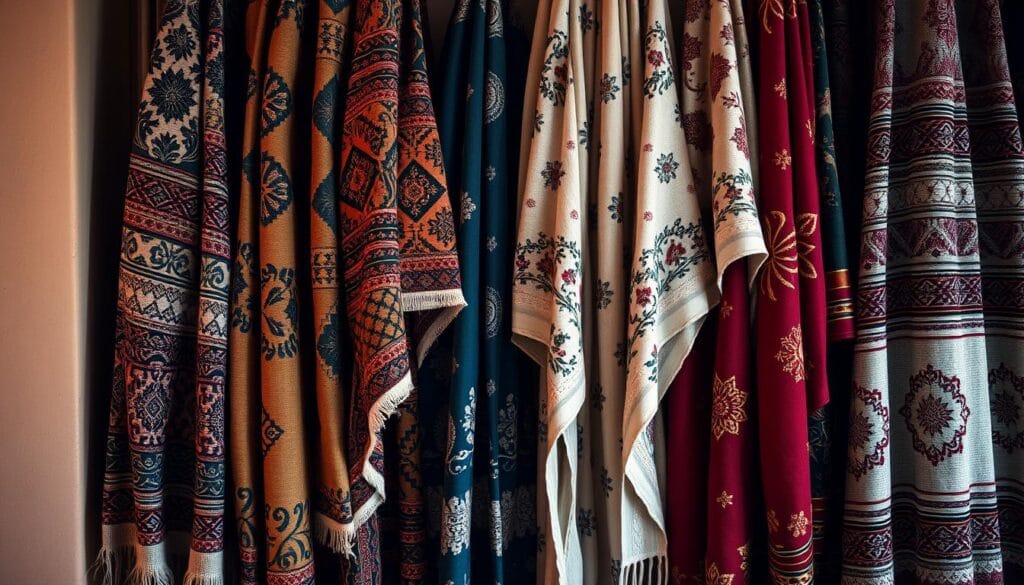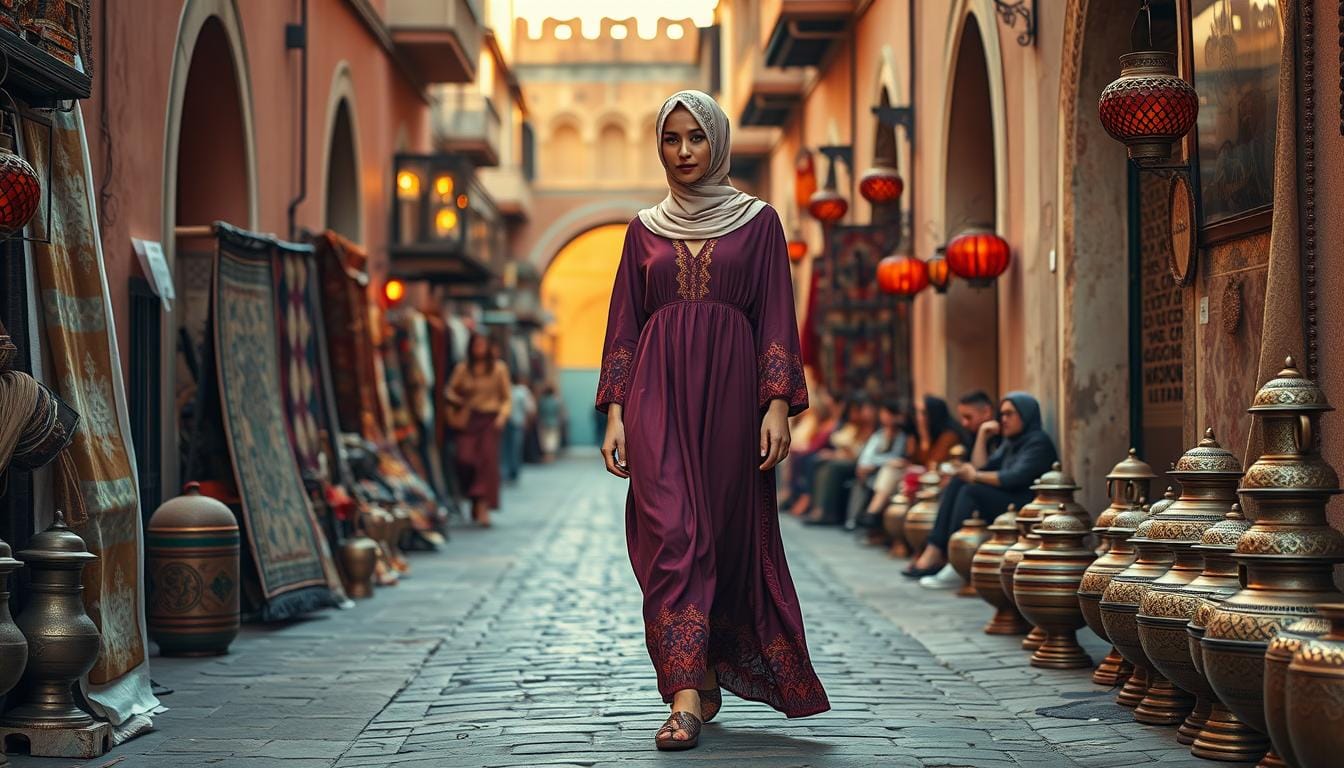Do I Need a Visa for Morocco? A Quick Guide by Nationality
Do i Need a Visa for Morocco? Morocco is famous for its rich culture and stunning fashion trends. When planning your trip, you might wonder about the entry requirements.
Knowing the visa rules is key, if you want to dive into Moroccan culture. You’ll love its lively markets and fashion. The answer to whether you need a visa is simple. It mostly depends on your nationality.
This guide will help you figure out if you need a visa. It will also show you how to get one if you do. This way, you can enjoy your trip without any hassle.
Table of Contents
ToggleUnderstanding Visa Requirements for Morocco
Planning a trip to Morocco? Knowing the visa rules is key for a smooth entry. Morocco is known for its rich culture, blending old and new.
Do i Need a Visa for Morocco: What is a Visa?
A visa lets you enter a foreign country for a set time. It’s like a permission slip from the host country’s government. In Morocco, the visa type depends on your nationality, visit purpose, and stay length.
Morocco is famous for its traditional Moroccan clothing. The women’s kaftans are a big part of its culture. Knowing visa rules is the first step to enjoying Morocco’s beauty and culture.
Importance of Knowing Visa Requirements
Knowing visa rules is important. It helps you get ready with the right documents and avoid last-minute problems. Different countries have different visa needs. Some need to apply in advance, while others can get a visa when they arrive or don’t need one at all.
- Research the specific visa requirements for your nationality.
- Understand the different types of visas available, such as tourist, business, or student visas.
- Be aware of the duration of stay allowed by your visa.
Being informed ensures a smooth trip to Morocco. You can dive into the local culture, including the stunning traditional clothing.
Who Needs a Visa to Enter Morocco?
Morocco’s rich culture, seen in its stunning Moroccan style dresses and detailed handcrafted Moroccan garments, is waiting for you. But, you must first check if you need a visa. Knowing if you need a visa is key for a smooth visit.
Countries Requiring a Visa
Some countries need a visa to enter Morocco. The list of these countries is long. It changes based on Morocco’s diplomatic ties and immigration rules.
- Citizens of countries with high immigration risks may face stricter visa requirements.
- Travelers from countries with reciprocal visa policies may have different requirements.
Countries Exempt from Visa Requirements
But, some countries don’t need a visa for tourism or business. This is Morocco’s way to encourage tourism and make business travel easier.
| Country | Duration of Stay | Purpose |
|---|---|---|
| United States | 90 days | Tourism/Business |
| European Union Countries | 90 days | Tourism/Business |
| Canada | 90 days | Tourism/Business |
When planning your trip, don’t miss out on the local culture. Visit the lively markets to find real Moroccan style dresses and
Visa-Free Access for U.S. Citizens
U.S. citizens can visit Morocco without a visa. This lets you dive into the local culture and see the beauty of authentic Moroccan attire. You can explore markets and see the stunning Moroccan women’s wear.
Duration of Stay
As a U.S. citizen, you can stay in Morocco for up to 90 days. This is perfect for seeing the Atlas Mountains and the Sahara Desert.
Remember to keep track of your stay. You can extend it by applying for a visa extension at the local immigration office.
Entry Conditions
To enter Morocco visa-free, you need a valid U.S. passport. It should be valid for at least six months after you leave Morocco. You also need proof of onward travel and enough money for your stay.
When you arrive, you’ll go through immigration. They might ask about your plans and where you’re staying. It’s smart to have your hotel reservation or a contact number in Morocco ready.
While you’re there, try wearing traditional Moroccan clothes. It’s a great way to experience the culture. You might even want to buy some Moroccan women’s wear as a keepsake.
Types of Visas for Morocco
Planning a trip to Morocco? Knowing about the different visas is key. Morocco is known for its rich culture and contemporary Moroccan fashion, drawing visitors from everywhere.
Morocco has various visas for different travelers. Whether you want to see the souks, enjoy the beaches, or dive into history, there’s a visa for you.
Tourist Visa
A tourist visa is perfect for exploring Morocco’s sights. You can see ancient medinas and modern cities with the latest contemporary Moroccan fashion. This visa lets you stay up to 90 days.
Business Visa
For business trips, like fashion conferences, you need a business visa. It allows a longer stay and is needed for commercial activities.
Student Visa
Want to study in Morocco? A student visa is for you. It’s for learning about culture or fashion design influenced by contemporary Moroccan fashion. It lets you stay for your studies.
It’s important to know the visa types and what they need. Pick the right visa for your trip to Morocco.
How to Apply for a Visa to Morocco
Planning a trip to Morocco? Knowing how to apply for a visa is key. Morocco is known for its vibrant culture and stunning landscapes. It’s also famous for its Moroccan designer clothing, showing the country’s rich heritage.
Application Process Overview
Applying for a Moroccan visa involves several steps:
- Determine the visa type needed for your visit.
- Gather required documents like a valid passport, application form, and photos.
- Submit your application to the nearest Moroccan embassy or consulate.
In some cases, an interview may be required.
Required Documents
To apply for a Moroccan visa, you’ll need:
- A valid passport with at least two blank pages and a validity period of six months beyond your stay.
- A completed visa application form, available on the Moroccan embassy or consulate’s website.
- Recent passport-sized photos that meet the requirements.
- Proof of travel plans, like flight tickets or an itinerary.
- Proof of where you’ll stay, such as hotel reservations or a host’s letter.
For certain visas, you might need more documents, like financial proof or health insurance.
Morocco is famous for its Moroccan designer clothing. It combines traditional techniques with modern styles. As you prepare for your trip, exploring the local fashion scene is a good idea.
By following these steps and gathering the right documents, you’ll get your visa. Then, you can enjoy all Morocco has to offer.
Processing Times for Moroccan Visas
The time it takes to get a Moroccan visa varies. It depends on the visa type and how fast you need it.
Standard Processing Times
Standard times for Moroccan visas range from a few days to weeks. The exact time depends on the visa type and the embassy’s workload.
| Visa Type | Processing Time |
|---|---|
| Tourist Visa | 5-10 business days |
| Business Visa | 7-15 business days |
| Student Visa | 10-20 business days |
Expedited Processing Options
If you need your visa fast, there are expedited options. But, they cost extra.
- Express Service: Cuts processing time to 2-3 business days.
- Urgent Service: Reduces it to 1 business day. Perfect for last-minute plans.
Knowing these options helps plan your trip to Morocco better. It ensures you get your visa on time.

Costs Associated with Moroccan Visas
Understanding the costs of Moroccan visas is key for a smooth trip. When planning your visit to Morocco, where you might enjoy the traditional Moroccan clothing, remember to include visa costs in your budget.
Visa Fees Overview
The price of a Moroccan visa depends on the visa type and your nationality. Here are some important details:
- Tourist Visa: Costs usually range from $30 to $100.
- Business Visa: Prices are often between $100 and $200.
- Student Visa: Prices vary, but are generally $50 to $150.
Payment Methods
You can pay for your Moroccan visa with cash or credit/debit cards at the embassy or consulate. Some places may also accept online payments.
When traveling to Morocco, remember to budget for visa costs. You might also want to explore the local culture, including
Arriving in Morocco: What to Expect
When you arrive in Morocco, you’ll feel the vibrant culture and the warm welcome of the people. The first steps are immigration and customs, which are easy to follow.
Immigration Procedures
First, you’ll face immigration control. Make sure you have your passport and, if needed, a visa ready.
Required Documents:
- Valid Passport
- Visa (if required)
- Proof of onward travel
Customs Regulations
Next, you’ll go to customs. Morocco lets you bring in personal items, but some goods are off-limits. This includes cultural items and certain textiles.
Remember, Morocco is known for its stunning textiles. You might want to buy women’s kaftans or Moroccan style dresses while you’re there.
| Item | Allowed Quantity | Restrictions |
|---|---|---|
| Personal Items | Reasonable Quantity | None |
| Cultural Artifacts | None | Export permits required |
| Textiles (including kaftans) | Reasonable Quantity for personal use | Commercial quantities require special permits |
Duration of Stay in Morocco
How long you can stay in Morocco depends on your visa. Whether you’re here without a visa or have one, knowing the stay rules is key for a great trip.

Max Stay for Visa-Free Travelers
Visa-free travelers can stay up to 90 days in 180 days. This gives you plenty of time to see Morocco’s cities, historic sites, and cultural events. You can also shop for handcrafted Moroccan garments, like traditional clothes and textiles, as unique souvenirs.
Extension Options for Visa Holders
If you have a visa, your stay length is on the visa. To stay longer, apply for an extension at the local authorities. You’ll need to submit an application with documents before your visa ends. Start early to avoid problems.
To extend your stay, go to the police station or immigration office. You’ll need a good reason, like studying, medical needs, or family visits. The authorities will check your application and might extend it based on your reason.
With an extended stay, dive deeper into Moroccan culture, visit markets, and enjoy the hospitality. Always follow local laws and respect Morocco’s customs and traditions.
Important Tips for Your Trip to Morocco
Getting ready for Morocco? It’s key to know the culture and health tips for a great trip. Morocco is full of history and culture. Being aware of local customs can make your trip better.
Health and Safety Considerations
Traveling to Morocco means taking health steps. Make sure your vaccinations are up-to-date. Also, drink lots of water to stay hydrated in the heat. Always be careful in crowded places for your safety.
Health Tips:
- Drink bottled or filtered water to avoid waterborne illnesses.
- Protect yourself from the sun with sunscreen, a hat, and sunglasses.
- Be cautious with street food and eat at reputable establishments.
Cultural Etiquette
Morocco values its rich culture. To visit well, respect local customs. Dress modestly when visiting mosques or rural areas. Knowing about authentic Moroccan attire and contemporary Moroccan fashion can make your trip better.
| Cultural Tip | Description |
|---|---|
| Dress Modestly | Cover your shoulders and knees, specially in religious sites. |
| Respect Local Customs | Know and respect local traditions, like during Ramadan. |
| Learn Basic Arabic Phrases | Saying hello in Arabic shows respect and is helpful. |
Being informed and respectful makes your Morocco trip rewarding. Embracing the local culture, including its clothes and customs, makes your visit richer. It also leaves a good impression on the people you meet.
Resources for Further Information
Planning a trip to Morocco? Knowing about the local culture can make your trip better. You can learn about moroccan designer clothing and the latest moroccan fashion trends. Official Moroccan government websites have the latest visa info and travel advisories.
Official Government Resources
These sites give you the lowdown on traveling to Morocco. You’ll find out about entry rules and customs. They also share info on cultural events and festivals, where you can see moroccan fashion trends.
U.S. Embassy Resources
The U.S. Embassy in Morocco’s website is a great place to start. It has safety updates, info on local laws, and customs. Whether you’re into moroccan designer clothing or want to learn about cultural etiquette, these resources are here to help.

